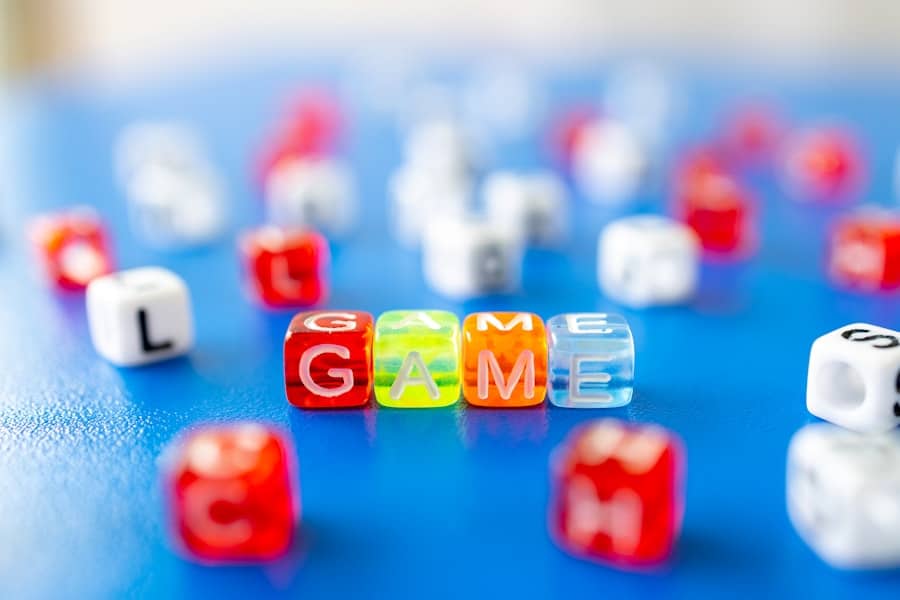Critical thinking and problem-solving are essential skills that underpin effective decision-making and innovation in various fields, from education to business and beyond. Critical thinking involves the ability to analyze information, evaluate evidence, and construct reasoned arguments. It requires individuals to question assumptions, recognize biases, and consider alternative perspectives.
Problem-solving, on the other hand, is the process of identifying challenges and developing strategies to overcome them. Together, these skills enable individuals to navigate complex situations, make informed choices, and devise creative solutions. In an increasingly complex world characterized by rapid technological advancements and a plethora of information sources, the ability to think critically and solve problems has never been more crucial.
Employers across industries seek individuals who can approach challenges with a thoughtful mindset, analyze data effectively, and propose innovative solutions. As such, fostering these skills from an early age is vital for preparing future generations to thrive in a dynamic environment. One effective method for cultivating critical thinking and problem-solving abilities is through the use of games, which provide engaging platforms for experiential learning.
Key Takeaways
- Critical thinking and problem-solving are essential skills for success in education and the workforce.
- Games play a significant role in developing critical thinking skills by engaging players in complex decision-making and problem-solving scenarios.
- Different types of games, such as strategy games, puzzles, and role-playing games, can foster critical thinking and problem-solving skills.
- Games encourage players to make decisions and develop strategies to overcome challenges, which translates to real-life problem-solving skills.
- Game-based learning has a positive impact on cognitive development and can be effectively integrated into education to enhance critical thinking skills.
The Role of Games in Developing Critical Thinking
Games have long been recognized as powerful tools for learning, offering immersive experiences that captivate players while simultaneously challenging their cognitive abilities.
Unlike traditional educational methods that often rely on rote memorization, games require players to actively participate in their learning process, making decisions that have real consequences within the game world.
Moreover, games often present players with complex scenarios that require them to analyze information, weigh options, and anticipate outcomes. This dynamic encourages players to think critically about their choices and develop strategies to achieve their goals. For instance, in strategy-based games like “Civilization,” players must consider various factors such as resource management, diplomacy, and military strategy while navigating the challenges of building a successful civilization.
Such experiences not only enhance critical thinking skills but also promote a deeper understanding of cause-and-effect relationships.
Types of Games that Foster Critical Thinking and Problem-Solving

There are several types of games that effectively foster critical thinking and problem-solving skills. Board games, for example, have been a staple in family entertainment for generations and often require strategic planning and foresight.
The complexity of chess lies not only in the rules but also in the myriad of possible moves and counter-moves, making it a rich environment for developing critical thinking. Video games also play a significant role in enhancing these skills. Titles such as “Portal” and “The Witness” challenge players with intricate puzzles that require logical reasoning and creative problem-solving.
In “Portal,” players must navigate through a series of test chambers using a portal gun that creates inter-spatial portals, necessitating innovative thinking to solve spatial puzzles. Similarly, “The Witness” presents players with a beautiful open-world environment filled with line-drawing puzzles that demand observation and pattern recognition. These games exemplify how digital platforms can create engaging scenarios that stimulate critical thought.
How Games Encourage Decision-Making and Strategy
Games inherently involve decision-making processes that require players to evaluate options and make choices based on available information. This aspect is particularly evident in role-playing games (RPGs) where players often face moral dilemmas or strategic choices that can significantly impact the game’s narrative or outcome. For instance, in “The Witcher 3: Wild Hunt,” players must make decisions that affect not only their character’s journey but also the fates of various non-playable characters (NPCs) within the game world.
Such scenarios compel players to weigh the consequences of their actions carefully, fostering a deeper understanding of decision-making dynamics. Furthermore, many games incorporate elements of strategy that require players to plan ahead and adapt their approaches based on evolving circumstances. In real-time strategy games like “StarCraft,” players must manage resources, build units, and engage in combat while simultaneously responding to their opponent’s tactics.
This fast-paced environment cultivates quick thinking and adaptability, as players must constantly reassess their strategies in response to changing conditions on the battlefield. The ability to make informed decisions under pressure is a valuable skill that extends beyond gaming into real-world applications.
The Impact of Games on Cognitive Development
The cognitive benefits of playing games extend far beyond mere entertainment; they can significantly enhance various aspects of mental functioning. Research has shown that engaging with games can improve memory, attention span, and spatial reasoning skills. For example, studies have indicated that action video games can enhance visual attention and improve the ability to track multiple objects simultaneously.
This heightened visual processing capability can translate into improved performance in tasks requiring quick decision-making and situational awareness. Moreover, games often require players to engage in multitasking—balancing various objectives while managing resources or navigating complex environments. This multitasking aspect can lead to improved cognitive flexibility, allowing individuals to switch between tasks more efficiently and adapt to new challenges with ease.
The immersive nature of gaming also promotes sustained attention, as players become engrossed in the gameplay experience. This level of engagement can lead to enhanced focus and concentration skills that are beneficial in academic and professional settings.
Integrating Game-Based Learning into Education

The integration of game-based learning into educational settings has gained traction as educators recognize the potential of games to enhance student engagement and learning outcomes. By incorporating games into curricula, teachers can create interactive learning experiences that resonate with students’ interests while promoting critical thinking skills. For instance, educational games like “Minecraft: Education Edition” allow students to explore concepts in subjects such as mathematics, science, and history through creative building projects within a virtual environment.
Additionally, game-based learning can facilitate collaborative problem-solving among students. Multiplayer games encourage teamwork and communication as players work together to achieve common goals. This collaborative aspect mirrors real-world scenarios where individuals must collaborate across disciplines to tackle complex challenges.
By fostering a sense of community and shared responsibility within the classroom, game-based learning can enhance social skills alongside cognitive development.
Practical Tips for Using Games to Enhance Critical Thinking Skills
To effectively utilize games as tools for enhancing critical thinking skills, educators and parents can adopt several practical strategies. First, selecting age-appropriate games that align with learning objectives is crucial. Games should challenge players without overwhelming them; thus, understanding the developmental stage of the learners is essential for choosing suitable titles.
Incorporating discussions around gameplay experiences can also deepen critical thinking development. After playing a game, facilitating conversations about decision-making processes, strategies employed, and alternative approaches can encourage reflection and analysis. This debriefing process allows players to articulate their thought processes and learn from one another’s experiences.
Furthermore, integrating game mechanics into traditional lessons can create a hybrid learning environment that maintains student engagement while reinforcing critical thinking skills. For example, educators might use gamification techniques such as point systems or challenges within standard lessons to motivate students and encourage active participation.
The Future of Game-Based Learning
As technology continues to evolve and reshape educational landscapes, the future of game-based learning appears promising. With advancements in virtual reality (VR) and augmented reality (AR), immersive gaming experiences are becoming increasingly accessible in educational contexts. These technologies have the potential to create even more engaging environments where students can explore complex concepts through experiential learning.
Moreover, as research continues to uncover the cognitive benefits associated with gaming, educators are likely to embrace game-based learning as a legitimate pedagogical approach. By recognizing the value of play in fostering critical thinking and problem-solving skills, educational institutions can prepare students for success in an ever-changing world. As we look ahead, it is clear that games will play an integral role in shaping the future of education by equipping learners with the essential skills needed for tomorrow’s challenges.
In the realm of digital engagement, the article “How Games Train Critical Thinking and Problem-Solving Skills” highlights the cognitive benefits of gaming, emphasizing how interactive challenges can enhance mental acuity. A related exploration can be found in the article Top Trends on YouTube 2023, which delves into the evolving landscape of digital content consumption. This piece discusses how platforms like YouTube are increasingly featuring content that promotes educational and skill-building activities, including gaming tutorials and strategy guides, further underscoring the role of digital media in fostering critical thinking and problem-solving skills.
FAQs
What are critical thinking and problem-solving skills?
Critical thinking and problem-solving skills are cognitive abilities that allow individuals to analyze, evaluate, and solve complex problems or make decisions based on logical reasoning and evidence.
How do games help train critical thinking and problem-solving skills?
Games often require players to strategize, make decisions, and solve problems within a set of rules and constraints. This can help develop critical thinking and problem-solving skills by encouraging players to think creatively, analyze situations, and adapt their strategies based on feedback and outcomes.
What types of games are effective for training critical thinking and problem-solving skills?
Various types of games, including puzzle games, strategy games, role-playing games, and even certain video games, can be effective for training critical thinking and problem-solving skills. These games often require players to think critically, plan ahead, and solve complex problems within the game’s context.
Are there any studies that support the idea that games can train critical thinking and problem-solving skills?
Yes, there have been numerous studies that have shown a positive correlation between playing certain types of games and the development of critical thinking and problem-solving skills. These studies have demonstrated that regular engagement with certain games can lead to improvements in cognitive abilities related to critical thinking and problem-solving.
Can playing games improve critical thinking and problem-solving skills in real-life situations?
While games can certainly help develop and strengthen critical thinking and problem-solving skills, the transfer of these skills to real-life situations may vary depending on the individual and the specific skills being developed. However, many individuals report that the problem-solving and critical thinking skills they develop in games can be applied to real-life scenarios.

